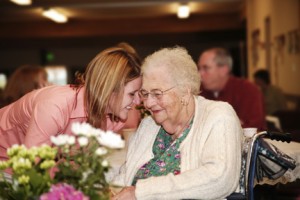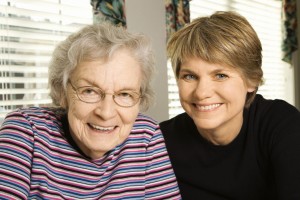When distance comes between you and an aging parent or another loved one who needs extra help, it can be especially tough to become their caregiver. A caregiver who lives an hour or more away from their parent or loved one is considered a long-distance caregiver. Although this arrangement presents many difficulties, it can also be effective and beneficial for everyone involved with a few special considerations.
New rules enacted to stop the spread of COVID-19 have made some local caregivers into, effectively, long-distance caregivers too. Social distancing and quarantine efforts kept some caregivers away for safety’s sake and shut nursing homes, hospitals and other care facilities down to outside visitors. In these cases, tips for long-distance caregivers might be useful too.
Stay Informed
 Staying organized and informed is really important when you are not there in person. This cuts down on unnecessary stress and confusion and makes talking to multiple medical professionals or other caregivers easier. Keep a list of all of your loved one’s medical conditions, medications, doctors, appointments and anything else that is relevant to their care. Be sure to update this list often and to research anything with which you are unfamiliar. Take detailed notes during appointments and phone calls with other care providers.
Staying organized and informed is really important when you are not there in person. This cuts down on unnecessary stress and confusion and makes talking to multiple medical professionals or other caregivers easier. Keep a list of all of your loved one’s medical conditions, medications, doctors, appointments and anything else that is relevant to their care. Be sure to update this list often and to research anything with which you are unfamiliar. Take detailed notes during appointments and phone calls with other care providers.
You will need to prepare a few legal documents in order for medical staff to share information about your loved one with you. A HIPPAA Authorization form provides written consent for this. You may also want to have a medical power of attorney document prepared so you would be able to make decisions for your loved one in the event that they are unable to do so for themselves.
Collaborate With Others
Especially when there are multiple people involved in caregiving, complicated medical needs and other family members who are concerned about how your loved one is doing, sharing information and communicating often is key. Make copies of your lists and notes about your loved one’s health for other family members and caregivers or start a shared online document that can be edited as needed. Becoming the sole recorder and keeper of this information creates unnecessary stress and even resentment so, if possible, share the effort.
It is important to stay in touch with your loved one’s doctors and other professionals. Conference calls or meetings involving members of the care team, caregivers and family members streamlines the information sharing process.
Connect With Your Loved One
Being a long-distance caregiver usually means that visits cannot occur as often as you would like. Planning can keep visits productive and enjoyable, so you and your loved one can make the best of your time together.
Whether physical distance or new social distancing guidelines are keeping you apart, technology creates new ways to keep in touch and have fun with your loved one. Getting them a phone or tablet — and providing the lessons on how to use it — give a direct line of communication. You can use it to video chat, text, play games together and send pictures, all of which can keep feelings of loneliness away.
The New York estate planning law firm of Littman Krooks, LLP combines extensive legal knowledge and experience with individual attention suited to each clients’ needs. For over 30 years, Littman Krooks attorneys have brought astute, honest counsel and strong, thorough representation to every client they have served. Reach Littman Krooks at https://www.littmankrooks.com/.




 The Department of Aging’s
The Department of Aging’s 
